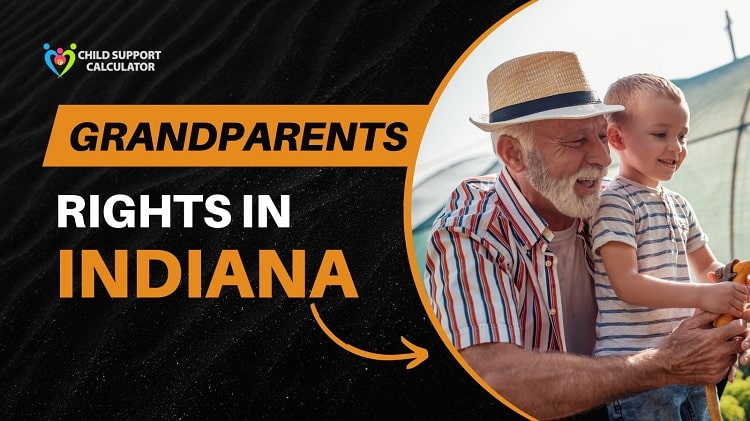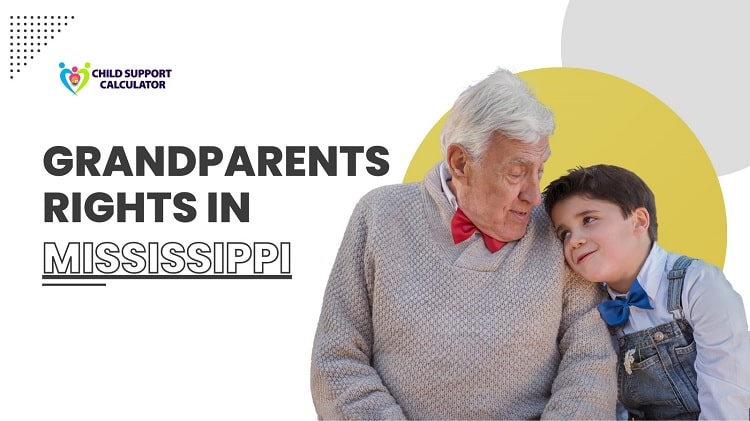Grandparents Rights In Indiana
Many grandparents claim that being a grandparent includes all of the benefits of parenting without the majority of the responsibilities. While this may be true for some, grandparents usually come in second when it comes to visitation. In general, parents have no repercussions if they deny their children visitation with a grandmother. The burden of proof falls on the grandparent to show that visitation is required for the child’s best interests.

There are several considerations to consider when deciding whether a grandparent visiting is suitable in a given situation. It’s critical to understand your legal rights and restrictions if you’re a grandparent who wants to spend more time with your grandchild. Grandparents rights in Indiana are discussed in this article. After reading this material, you should seek legal advice from a competent family law professional if you have any questions.
Grandparent Visitation Rights In Indiana
Grandparents rights in Indiana have strong legal protections and can seek visitation if specific conditions are met. A grandparent must demonstrate that visitation is in the child’s best interests. Unless a child’s needs aren’t being addressed, parents have a fundamental right to parent their own children without government (or grandparent) involvement. To overcome this, a grandparent will need to make a good showing. In Indiana, a grandmother may request visitation with a grandchild if the following conditions are met:
- The child’s (grandparent’s) parent has passed away.
- The parents of the child have divorced or had their marriage annulled.
- The child was born outside of marriage.
One exception to this rule is that if paternity for a kid has not been confirmed, paternal grandparents cannot seek visitation. In one example in Indiana, an unmarried mother and father (grandparents’ child) had a child together just before the father of the child committed suicide. Prior to the father’s death, paternity was not proved; nonetheless, the child’s mother and grandparents agreed to fatherhood.
As a result, when the child’s mother began limiting visits, the grandparents were able to pursue court-ordered visitation. The court ultimately refused grandmother visitation since the mother had not totally cut off access, and more visitation would not be in the child’s best interests.
Even if a grandmother can seek visitation, as proven in the previous case, that does not ensure that the court will order the visits. In Indiana, a judge must give considerable weight to a parent’s requests since it is presumed that they will act in the kid’s best interests.
A grandmother who had previously had custody of her grandchild was refused visitation in another Indiana case. The court made its ruling based on the child’s best interests and the child’s father’s wishes to limit visits.
Grandparent Custody Rights In Indiana
A fit and proper parent always gets priority over a grandmother when it comes to custody rights. Even when the grandmother is more committed to the child or better able to provide for the child’s financial requirements, the preference for parents persists.
To overcome a parent’s presumption of custody, a grandparent must demonstrate that it is in the child’s best interests for the grandparent to have custody and that a grandparent placement would benefit the grandchild materially and significantly. When deciding whether or not to award custody to a grandmother, judges often examine the following evidence:
- The parent of the child is unfit.
- A change in custody has been agreed to by the child’s parents.
- The parent of the child has abandoned or neglected the youngster.
- The child was abused by his or her parents.
A court will consider a child’s best interests once the grandparent has overcome a parent’s presumption of custody. The judge will consider the age of the kid, the child’s wishes, the child’s emotional and physical requirements, the child’s bond with his or her parents and/or grandparents, and any other relevant facts.
In one Indiana case, the children’s father was given primary custody at first, while the mother was allowed to see them on a regular basis. The children’s father died shortly after the parents divorced. Because the mother was not emotionally fit to parent the children, the trial court gave custody to the paternal grandparents.
The court decided that handing custody to the paternal grandparents was in the children’s best interests after examining the mother’s mental instability, poor physical health, and continued alcohol consumption.
Can Biological Grandparents Obtain Visitation After Their Grandchild Is Adopted
Even after a grandchild is put for adoption in Indiana, biological grandparents rights in Indiana continue. There are a few exceptions to this rule, though. First and foremost, visitation must be in the kid’s best interests. Second, before the adoption, the grandparent must apply for court-ordered visitation.
Maternal grandparents were refused visitation with a granddaughter who had been adopted by a stepmother in one example. The mother (grandparents’ daughter) and father of the child divorced. The child’s mother died just one month following the father’s remarriage.
The new wife adopted the child, who also filed a new birth certificate. The maternal grandparents did not request visitation until after the adoption was finalized. They were unable to pursue visitation after the adoption because they failed to establish it prior to the adoption.
As shown in the example above, grandparents can be abruptly shut out of a grandchild’s life. Making decisions regarding your child’s development, including how much time they spend with a grandparent, is an important part of being a parent.
The good news for grandparents is that if they wish to spend time with their grandchildren but are unable to do so, they can often seek legal help. Because timing is everything, it’s critical to be aware of your rights and responsibilities. If you have any additional questions about grandparent rights in Indiana, you should get legal guidance from a local family law attorney.
FAQs
Even after a grandchild is put for adoption in Indiana, a biological grandparent’s visitation rights continue. There are a few exceptions to this rule, though. First and foremost, visitation must be in the kid’s best interests. Second, before the adoption, the grandparent must apply for court-ordered visitation.
“A child’s grandparent may seek visiting rights if the child’s parents’ marriage has been dissolved in Indiana,” according to Indiana Code 31-17-5. The court may grant visiting rights after a petition is filed if the court believes that visitation privileges are in the child’s best interests.
Grandparents do not have automatic rights to see their grandchildren under the law. Parents can opt to keep their children away from grandparents in almost every scenario.
No, the court rigorously follows the Indiana statute on grandparent visiting. Only grandparents, not great-grandparents, have the legal authority to request this visitation. The court cannot mandate visitation for great-grandparents under the law.
If you want extra visits with your grandparents, you can ask the court to order them. On the other hand, the court is unlikely to intervene with your parents’ choice on how much visitation you should get. If you already have visits and your parents refuse to give you more, the court is unlikely to impose additional visits.







